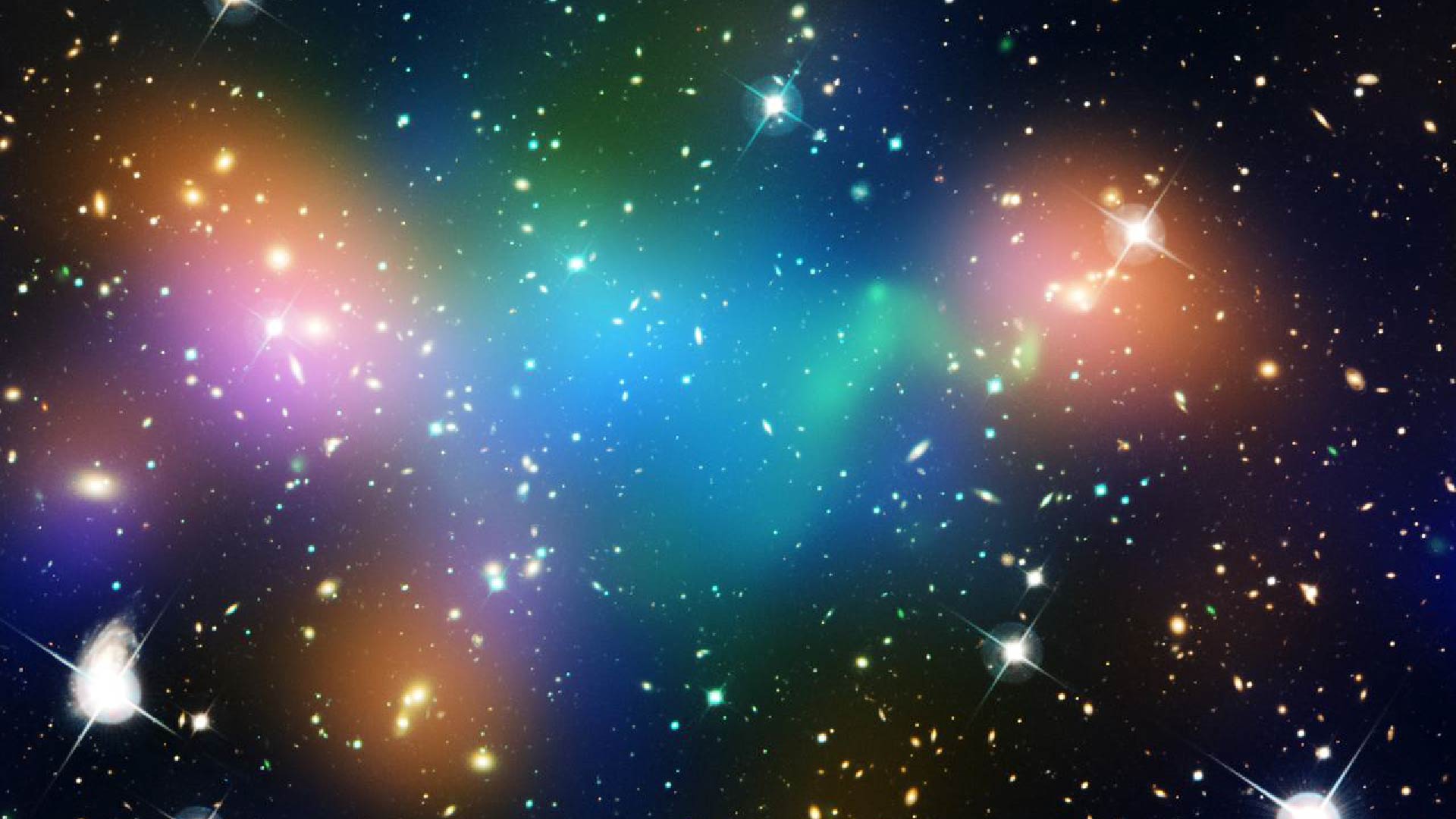
Gigantic clumps of invisible dark matter that roam the universe may be wreaking havoc on binary stars, slowly tearing them apart, a new study suggests. Those violent effects could help reveal the true nature of the universe's most elusive entity.
Over the decades, astronomers have amassed an enormous amount of evidence pointing to the existence of dark matter, an invisible form of matter that accounts for around 85% of the mass in almost every galaxy. Initially, astronomers thought dark matter might be a new kind of particle known as weakly interacting massive particles (WIMPs), which would interact only with each other through gravity and the weak nuclear force.
But experiments designed to find the trace signals of WIMPs as they float through Earth haven't found anything, and the WIMP model has some difficulties matching the densities of matter within galactic cores. Because of this, scientists have been increasingly looking toward an alternative model in which the dark matter particle is extremely light — even lighter than the lightest known particle, the neutrino.
In these models, the dark matter particle would be more than a billion billion times lighter than an electron. And we know from quantum mechanics that all particles have a wave-like nature associated with them, which we can usually detect only in subatomic experiments. But in this scenario, the dark matter would be so light that it would act more like a wave at scales the size of the solar system or bigger.
Recently, a team of astronomers in China examined this model and looked for ways to observationally detect this kind of dark matter. They reported their work in an article published to the preprint server arXiv in April. (The study has not been peer-reviewed yet.)
Ultralight dark matter wouldn't buzz around the cosmos like tiny bullets. Instead, it would slosh around every galaxy like a vast, invisible ocean. And just like oceans can support waves, the bath of ultralight dark matter would have oscillations of its own. Some of these waves could potentially bundle together into a single group that travels interdependently while maintaining their shape — known as a soliton.

These solitons would be completely invisible — like giant, rogue waves washing through the galaxy but made of matter so light that they would barely affect their surroundings. But the scientists behind the new study discovered that the solitons' huge size could subtly alter the gravitational environment around them.
The gravitational influence of the solitons would be so weak that almost everything in the galaxy would be unaffected by them. But binary pairs of stars that have wide separations are only weakly held together by their mutual gravity, so the solitons would be big enough to alter their orbits.
The researchers identified all wide binary pairs in the Gaia catalog of the billion stars closest to the sun and flagged them for future observations. If the binary stars were to start drifting away from each other, that might be due to the influence of solitons.
The team found that by watching the binary stars evolve, we could have a very sensitive probe of ultralight dark matter — perhaps even more sensitive than any Earth-based laboratory designed to detect this kind of dark matter. So, if something strange seems to be happening to binary stars, we might just have our first clue as to the nature of dark matter.







